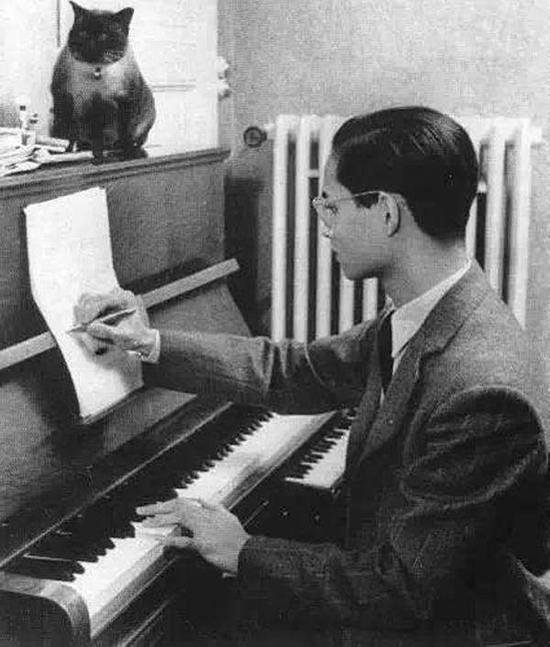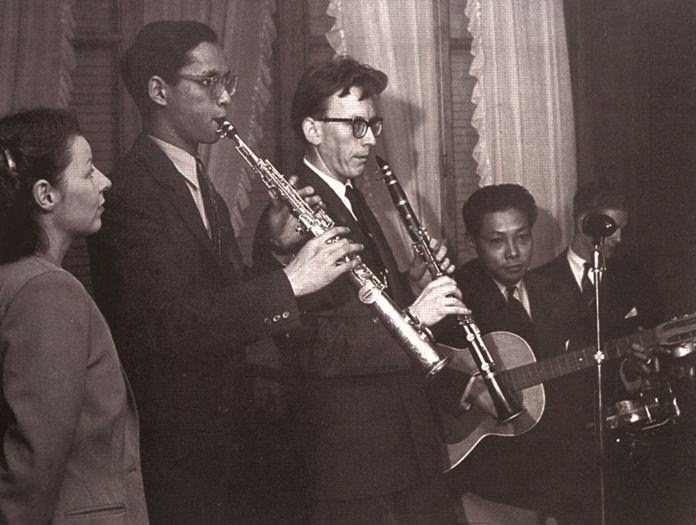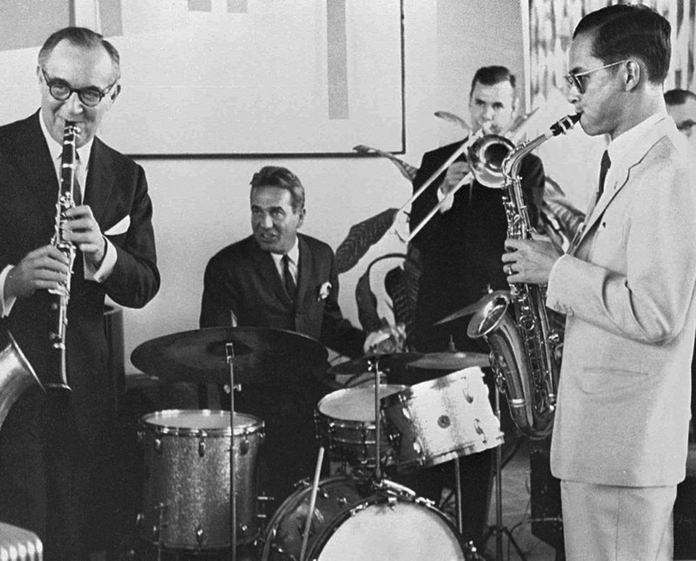
The title of course, is that of one the best-loved songs of His Majesty late King Bhumibol Adulyadej but the words seem especially appropriate at the moment. His Majesty’s musical contribution to his country has been immense, as a composer, a performer and a supporter of the arts.
In the entire history of classical music there have been few kings who were successful composers. The thirteenth century Spanish king known as Alfonso the Wise evidently dabbled in music and co-authored numerous musical compositions during his reign. Henry the Eighth of England was considered by his contemporaries to be a competent composer and could play several musical instruments.
Then there was Frederick II who became known as Frederick the Great of Prussia and was evidently known affectionately by his subjects as “Old Fritz”. He was a patron of music and a fine flute player who composed over a hundred sonatas for the instrument as well as four symphonies. And we must not forget the biblical King David who, as a shepherd boy had earned fame by dealing with Goliath. He was evidently a musician too but we know little of his musical achievements.

Music was no stranger to the royal family in which His Majesty King Bhumibol Adulyadej grew up. As a child, his passion for music might have been kindled by listening to gramophone records owned by his father, H.R.H. Prince Mahidol of Songkla who had a large collection of classical and jazz records. The King’s elder sister, H.R.H. Princess Galyani Vadhana who had a lifelong passion for classical music, once said that His Majesty developed an interest in music at the same time as his elder brother, King Ananda Mahidol, after the two of them heard her playing the piano. Many years later in 2004, Her Royal Highness established a Fund for Classical Music Promotion which supported classical music, provided assistance to Thai musicians to study and promoted competitions and concerts.
His Majesty had shown a natural aptitude for music since his early childhood and started to play the clarinet at the age of ten. During his studies in Switzerland, he took up various musical instruments and studied music seriously, concentrating on classical music for about two years before he developed a keen interest in jazz. Although he learned to play several instruments including the piano and the trumpet, it was the clarinet and the saxophone that evidently provided the greatest musical satisfaction. Few people fail to recognize the iconic photograph of His Majesty playing his beloved alto saxophone. Sadly, the instrument is now silent and stands forlornly in its display case at Bangkok National Museum.
Long hours were spent practising but His Majesty also played along with gramophone records of famous jazz musicians. He was especially influenced by the legendary saxophone player Sidney Bechet and also by Johnny Hodges, one of the great jazz saxophone players of all time. Hodges was best known for his solo work with Duke Ellington’s big band and he played the alto saxophone with a remarkably pure singing tone quality. Incidentally, His Majesty was born in the same American city as Johnny Hodges, though twenty years later. It was of course, Cambridge Massachusetts.
In later years King Bhumibol performed with some world famous jazz musicians including clarinetist Benny Goodman, trombonist Jack Teagarden and the vibraphone player Lionel Hampton. And yes, there are a few recordings available on YouTube which show His Majesty in performance which reveal his professional playing skills.
Although His Majesty was a fine performer on the saxophone his many songs will remain in the hearts of Thai people. Few people realize that His Majesty’s best-loved songs were written when he was a young man of eighteen. It was then that he took up composing seriously, evidently with encouragement from his royal brother. His first song Candlelight Blues dates from 1946 when His Majesty was still a teenager. The same month he wrote Love at Sundown. His third song, Falling Rain was a charming waltz and these three songs have remained popular not only with Thai people but have also achieved international recognition.

After he became King of Thailand, His Majesty continued to produce a steady stream of compositions including Blue Day, Dream of Love, Dream of You and Love Light in my Heart. In total he composed forty eight songs for the appreciation and enjoyment of the Thai people. The fact that his songs have enjoyed immense popularity over such a long period of time is a testament to His Majesty’s musical accomplishments. Less well known is the fact that His Majesty also composed Thai patriotic songs and marches as well as the anthems for Chulalongkorn, Thammasat and Kasetsart Universities.
During his lifetime, His Majesty received international recognition for his many services to music. In 2000 he received the Stanford medal from Yale School of Music and in 2003 he received an honorary doctorate degree in music from the College of Music, University of North Texas.
H.M. King Bhumibol Adulyadej (1927-2016): Still on My Mind. Thailand Philharmonic Orchestra cond. Claude Villaret (Duration: 03:48; Video 1080p HD)
The attractive song Still on My Mind dates from 1965 when its royal composer was thirty-eight. The previous year, King Bhumibol had become the twenty-third person and the first person in Asia to receive the coveted Certificate of Bestowal of Honorary Membership on behalf of Vienna’s University of Music and Performing Arts.
Still on My Mind was His Majesty’s thirty-seventh composition and was the first song for which the king himself wrote the English lyrics. The Thai lyrics were later written by Professor Prasert Na Nagara who became the first chairman of the council of International Buddhist College.
This is a splendid orchestral arrangement and after a slow introduction, the music drifts into a compelling Latin-American rhythm with the catchy and memorable melody shared between various sections of the orchestra. The performance was recorded in the Prince Mahidol Hall at Mahidol University’s College of Music and given a lively performance by what must surely be the best symphony orchestra in the country.
H.M. King Bhumibol Adulyadej: Royal Guards March. Siam Symphonic Band (Duration: 04:17; Video 1080p HD)
This delightful march has become tremendously popular, and although at first it seems a relatively simple piece, first impressions can be deceptive. Under the surface, there’s a wealth of fascinating detail. There are beautifully contrasted sections, inventive and catchy themes and attractive counter-melodies. You can hear an orchestral arrangement of this march on YouTube, but the band version is truer to the original and seems to bring out the spirit of the music more compellingly.
The march is taken at a lively tempo and the musicians of the Siam Symphonic Band give an excellent, accurate and foot-tapping performance. To my mind this work reveals His Majesty’s professional composing skills and mastery of melody even more than the songs. It has become a real classic of the genre and will undoubtedly remain in the band repertoire for many years to come as a lasting testimony to the remarkable musical abilities of its royal composer.
 |
 |
 |





